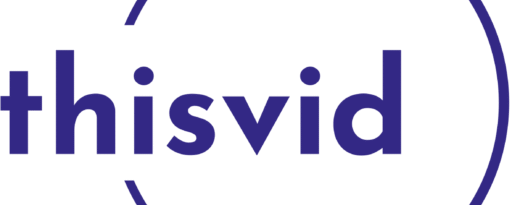Exploring the Different Types of Psychiatric Medications
Psychiatric medications are an important and necessary part of mental health treatment. These medications can help manage symptoms associated with mental health conditions such as depression, anxiety, bipolar disorder, and schizophrenia. While psychiatric medications can be very effective in improving mental health, it is important to understand the different types of medications available, as well as their potential risks and benefits.
Introduction to Psychiatric Medications
Psychiatric medications, also known as psychotropic or psychotherapeutic medications, are medications used to treat mental health conditions. These medications are prescribed by psychiatrists or other mental health professionals to help manage symptoms and improve functioning. They are used to treat a variety of mental health conditions, including depression, anxiety, bipolar disorder, schizophrenia, and attention deficit hyperactivity disorder (ADHD). Psychiatric medications can have a variety of short-term and long-term effects, and it is important to understand how they work and how they can help.
Commonly Prescribed Psychiatric Medications
The most commonly prescribed psychiatric medication classes are antipsychotics, antidepressants, stimulants, mood stabilizers, and anxiolytics. Antipsychotics are used to treat psychotic symptoms such as hallucinations, delusions, and disorganized thinking. Antidepressants are used to treat depression and are available in different classes, including selective serotonin reuptake inhibitors (SSRIs), serotonin and norepinephrine reuptake inhibitors (SNRIs), tricyclic antidepressants, and monoamine oxidase inhibitors (MAOIs).
Stimulants are commonly prescribed to treat attention-deficit hyperactivity disorder (ADHD) and can help improve concentration and impulse control in people with this condition. Mood stabilizers are used to treat bipolar disorder and help reduce the intensity and duration of manic and depressive episodes. Finally, anxiolytics are used to treat anxiety disorders and can help reduce feelings of fear, nervousness, and restlessness.
Types of Psychiatric Medications
Psychiatric medications are a type of medication used to treat a variety of mental health conditions. They are used to help manage symptoms, including anxiety, depression, bipolar disorder, attention deficit hyperactivity disorder (ADHD), and schizophrenia.
The types of psychiatric medications available can vary widely depending on the condition being treated and the individual’s needs. There are generally four categories of psychiatric medications:
1. Antidepressants: These medications are used to treat depression and help regulate mood. Examples include selective serotonin reuptake inhibitors (SSRIs) and serotonin and norepinephrine reuptake inhibitors (SNRIs).
2. Antipsychotics: These medications are used to treat psychotic disorders, such as schizophrenia, and help regulate psychotic symptoms, such as delusions and hallucinations. Examples include typical antipsychotics and atypical antipsychotics.
3. Mood Stabilizers: These medications are used to treat bipolar disorder and help regulate mood swings. Examples include lithium and anticonvulsants.
4. Anxiolytics: These medications are used to treat anxiety disorders and help reduce feelings of fear, worry, and panic. Examples include benzodiazepines and beta-blockers.
In addition to these four categories, there are also other types of psychotropic medications that are used to treat a variety of mental health conditions. These include medications for sleep, ADHD, and substance abuse.
Benefits of Psychiatric Medications
Psychiatric medications can provide significant benefits for individuals with mental health conditions. These medications can help reduce symptoms of mental health disorders, such as depression and anxiety, and improve overall well-being. Medications can also help individuals manage their emotions better and improve their ability to function in daily life.
Psychiatric medications can be used to treat a variety of mental health conditions, including depression, bipolar disorder, schizophrenia, and anxiety disorders. Medications can also be used to help people manage the symptoms of substance use disorders. In some cases, psychiatric medications can be used as part of a combination of treatments, such as psychotherapy, for mental health conditions.
The main benefit of psychiatric medications is that they can help reduce symptoms and improve overall functioning. For example, antidepressant medications can help reduce symptoms of depression, such as sadness and fatigue, and can improve one’s ability to function in day-to-day life. Antipsychotic medications can help reduce the symptoms of schizophrenia, such as delusions and hallucinations. Anxiety medications can help reduce symptoms of anxiety, such as fear and worry.
In addition to reducing symptoms and improving overall functioning, psychiatric medications can have other benefits as well. For example, taking medications as prescribed can help reduce the risk of suicide in individuals with severe depression. Medications can also help reduce the risk of relapse in individuals with mental health conditions. Finally, medications can help individuals manage stress more effectively and improve their overall quality of life.
Risks and Side Effects of Psychiatric Medications
1. Physical side effects – Psychiatric medications can cause a variety of physical side effects, including changes in heart rate and blood pressure, nausea, weight gain, muscle spasms, tremors, dizziness, constipation, dry mouth, and sexual dysfunction.
2. Psychological side effects – Psychiatric medications can also cause psychological side effects including agitation, anxiety, disorientation, confusion, and difficulty concentrating.
3. Addiction – While rare, it is possible to become addicted to some psychiatric medications.
4. Withdrawal – Stopping psychiatric medications abruptly can lead to withdrawal symptoms, including headaches, fatigue, nausea, and anxiety.
5. Interactions – Psychiatric medications can interact with other medications, including over-the-counter medications, herbal supplements, and even certain foods. It is important to speak with a doctor or pharmacist before beginning any medication.
6. Suicidal thoughts – Some psychiatric medications can increase the risk of suicidal thoughts and behaviors in certain individuals, particularly those under the age of 24.
Conclusion
In conclusion, psychiatric medications can be very helpful for people suffering from mental health disorders. They can be used as a short-term solution to get through a tough period or a longer-term solution to help manage the illness. It is important to consult with a doctor or mental health professional before taking any medication, as medications can interact with each other and have side effects. Additionally, it is important to remember that medications are not a cure-all and need to be used in conjunction with other treatments, such as therapy and lifestyle changes, to be most effective. Ultimately, psychiatric medications can be a powerful tool in the fight against mental health disorders and can help people to live better lives.







